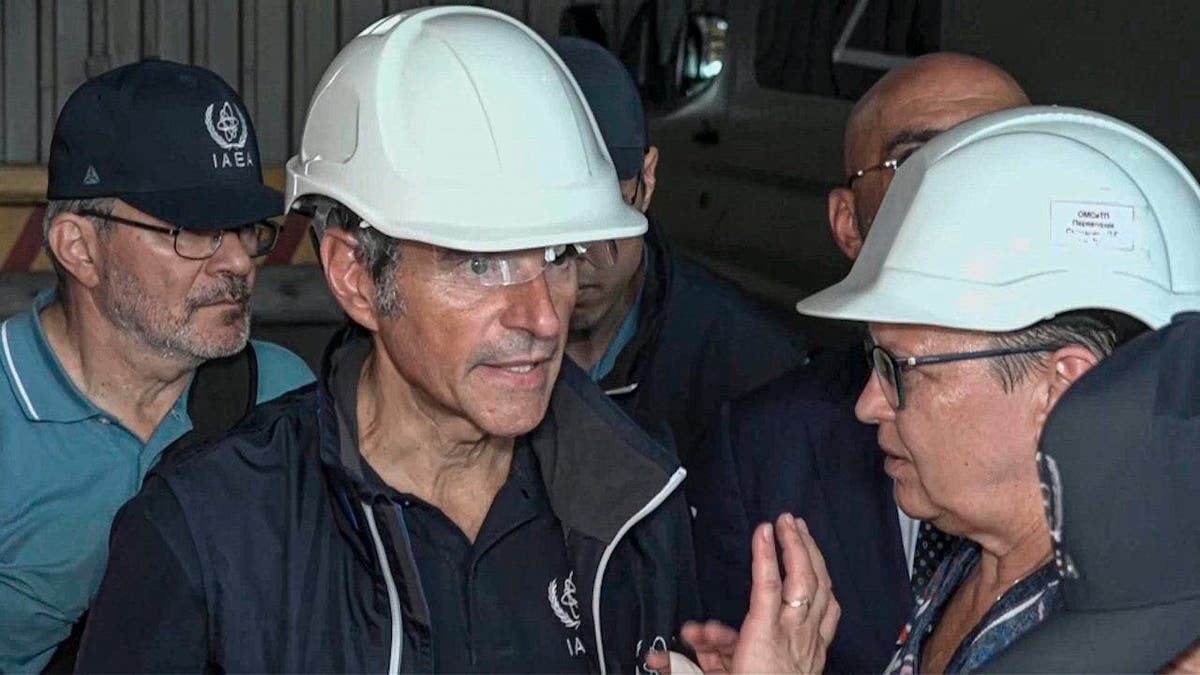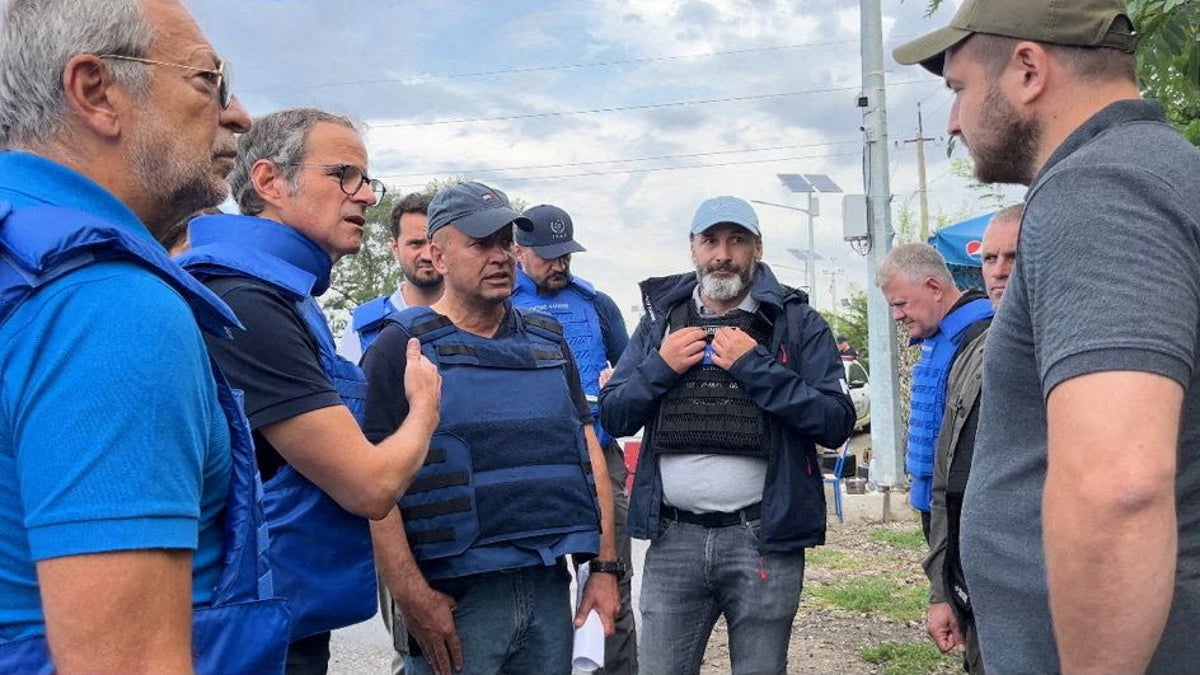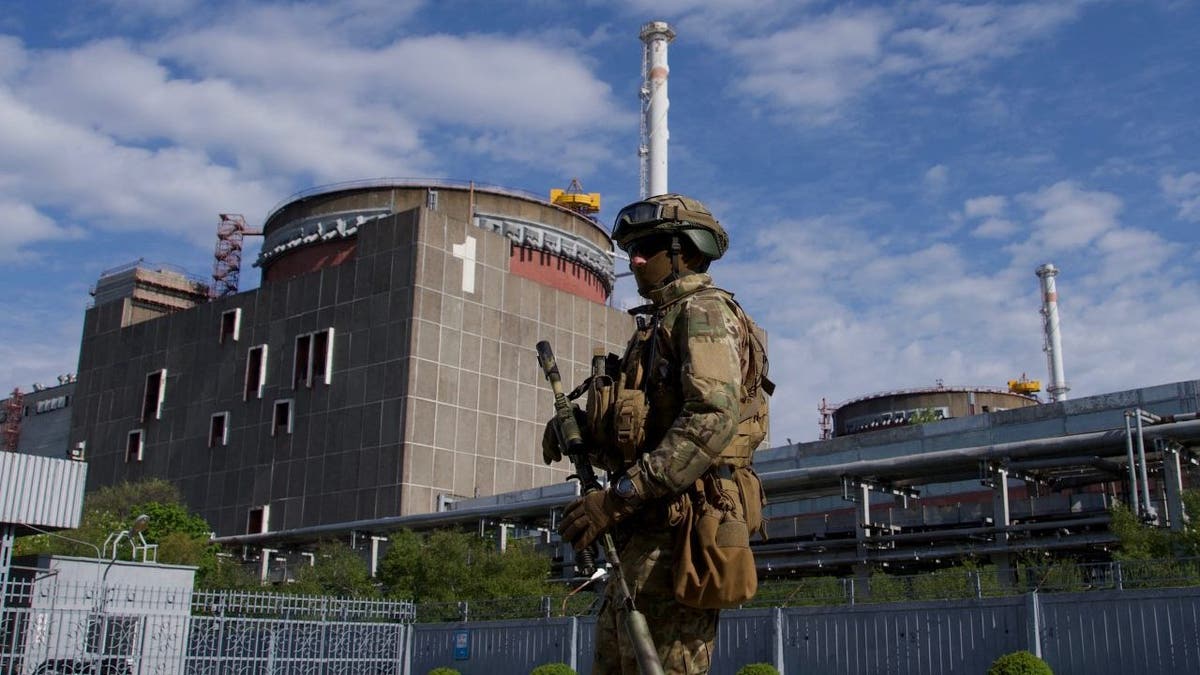Fire breaks out at Zaporizhzhia nuclear power plant in Ukraine
Fox News correspondent Alex Hogan reports from Kyiv on Ukraine's new counterattack strategy and its mostly 'symbolic' successes against Russian invaders on 'Special Report'
U.N. nuclear watchdog, the International Atomic Energy Agency (IAEA), said Tuesday it found damage caused to buildings at the Zaporizhzhia nuclear power plant (ZNPP) that are housing "fresh" nuclear fuel and solid radioactive waste.
"The team closely witnessed shelling in the vicinity of the ZNPP, in particular on 3 Sept. when the team was instructed to evacuate to the ground level of the Administrative Building," a report by IAEA Director General Rafael Grossi to the United Nations Security Council said. "Moreover, the team observed damage at different locations caused by reported events with some of the damage being close to the reactor buildings."

In this handout photo taken from video released by Russian Defense Ministry Press Service on Friday Sept. 2, 2022, International Atomic Energy Agency (IAEA) director Rafael Grossi, the mission leader, center, and IAEA members inspect the Zaporizhzhia Nuclear Power Plant. (Russian Defense Ministry Press Service via AP)
UKRAINE'S ZELENSKYY WARNS OF 'RADIATION DISASTER' AHEAD OF IAEA MISSION REPORT ON ZAPORIZHZHIA
Grossi’s report Tuesday is the first update the international community has received on Europe’s largest nuclear power plant since Russia invaded Ukraine in February.
The ZNPP has seen repeated damage caused by shelling that has hit the plant’s power lines connecting it to Ukraine’s electrical grid as well as its structural integrity.
In his report, Grossi detailed several events that have "significantly compromised" the plant’s "Seven Pillars" – a standard at which the IAEA bases its security guidelines – since the ZNPP was first occupied in early March by Russian forces.

IAEA Director General Rafael Mariano Grossi and fellow officials try to negotiate access to Zaporizhzhia nuclear power plant amid Russia's invasion of Ukraine, in Zaporizhzhia region, Ukraine, in this handout image released September 1, 2022. (International Atomic Energy Agency (IAEA) /Handout via REUTERS )
The IAEA chief laid out a litany of concerns relating to damages inflicted on the plant’s electrical system, harm caused to the Central Alarm Station and damage inflicted on a container where the radiation monitoring system is located.
The IAEA report also "noted with concern that the shelling could have impacted safety related structures, systems and components, and could have caused safety significant impacts, loss of lives and personnel injuries."
Both Russia and Ukraine have accused each other of targeting the nuclear power plant, though the IAEA report did not clarify who is responsible for the attacks on the ZNPP.

TOPSHOT - A Russian serviceman patrols the territory of the Zaporizhzhia Nuclear Power Station in Energodar on May 1, 2022. - The Zaporizhzhia Nuclear Power Station in southeastern Ukraine is the largest nuclear power plant in Europe and among the 10 largest in the world. ((Photo by Andrey BORODULIN / AFP) (Photo by ANDREY BORODULIN/AFP via Getty Images))
Grossi noted that though the shelling has not yet triggered a nuclear emergency, the attacks remain a "constant threat to nuclear safety and security because critical safety functions (containment of the radioactivity and cooling in particular) could be impacted."
The IAEA director general is set to brief the U.N. Security Council Tuesday afternoon though it is unclear if he will detail who has targeted the nuclear power plant.


